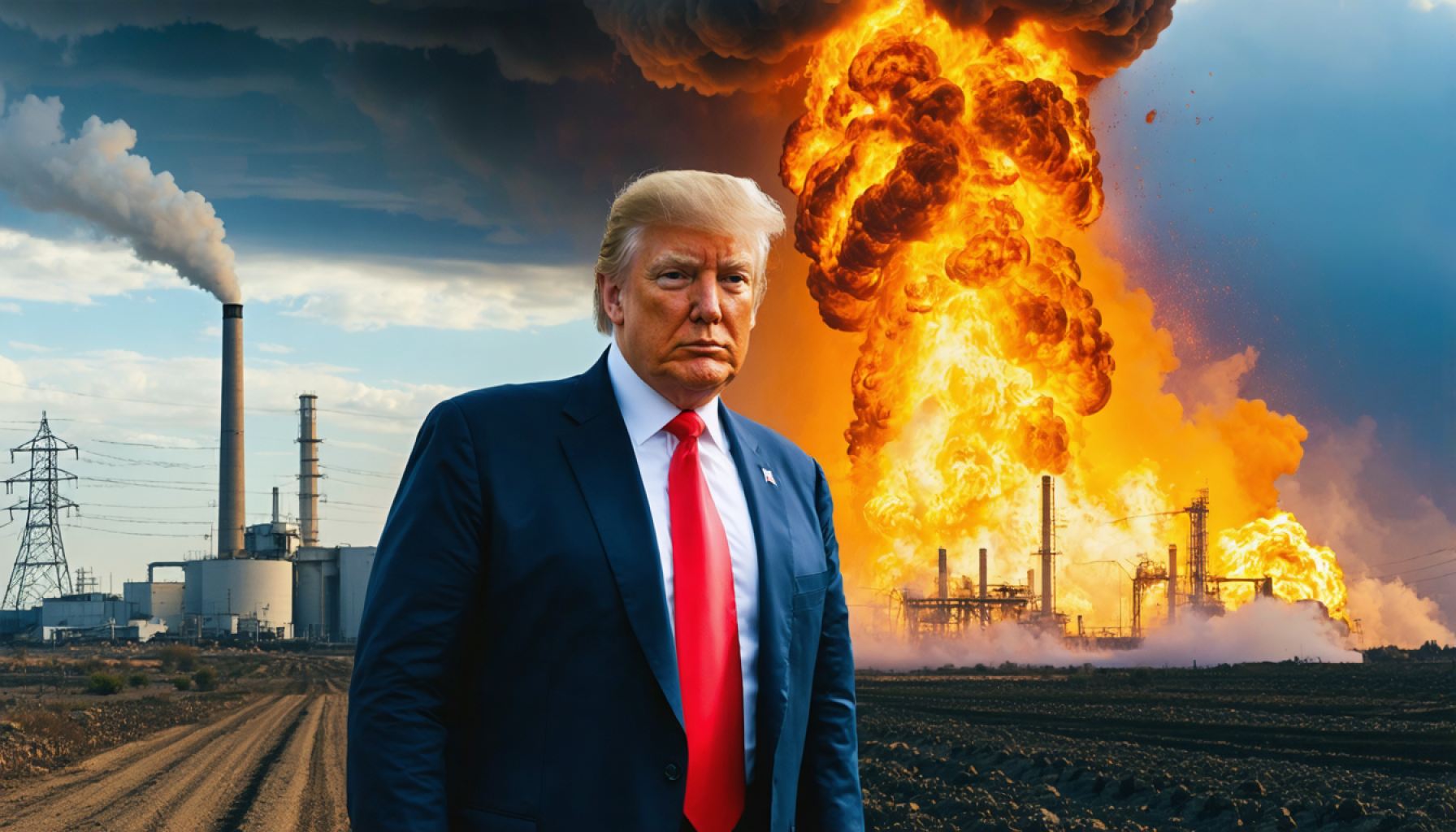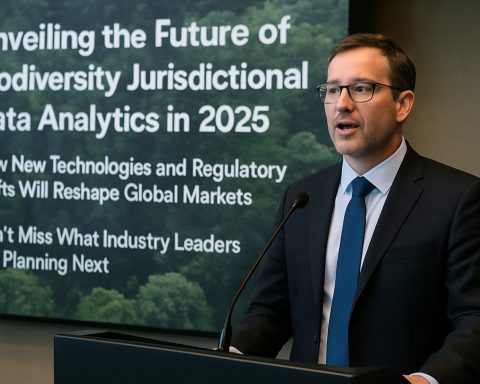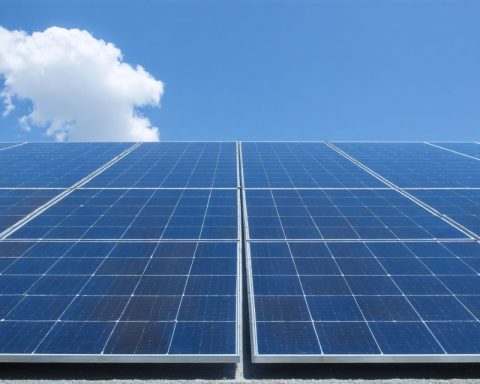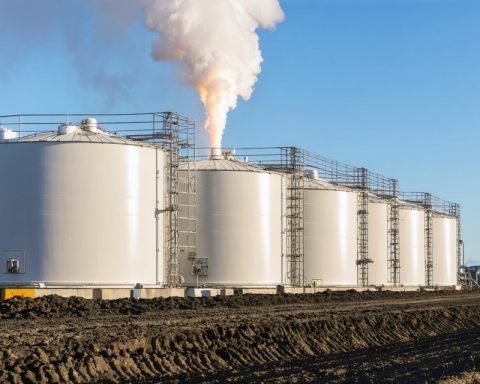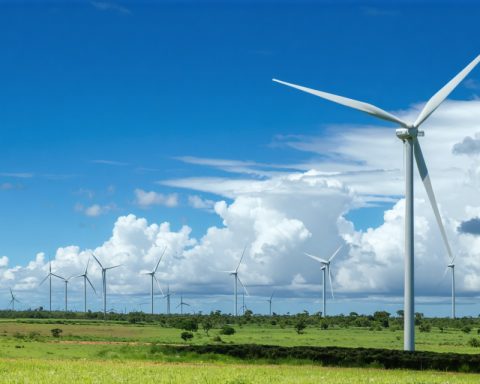- Donald Trump’s presidency marks a shift towards increased fossil fuel production, reversing previous climate policies.
- The U.S. plans to withdraw from the Paris Agreement and declare a “national energy emergency” to boost domestic oil and gas exploration.
- Industry leaders emphasize a need to balance energy expansion with global climate involvement.
- Tariffs on critical imports could raise infrastructure costs, complicating economic revival goals.
- Energy industry executives anticipate “energy realism,” combining fossil fuel advances with geopolitical and economic considerations.
- The ongoing tension between economic growth and environmental stewardship remains central to the energy discourse.
The political tides have shifted, and in their wake, a cascade of change rolls through the U.S. energy landscape. With Donald Trump’s return to the White House, the energy industry braces for a reinvigoration of fossil fuel production that echoes a not-so-distant past. On his initial day back in office, President Trump swiftly discarded climate-focused policies and heralded a new era for domestic oil and gas exploration, signaling the nation’s withdrawal once more from the Paris Agreement.
In a series of sweeping executive orders, the administration declared a “national energy emergency,” vowing to restore America’s energy dominance by drilling deeper and wider into fossil fuel reserves. The objective is clear: expedite projects, bypass regulatory roadblocks, and tap into the untapped abundance lurking beneath U.S. soil. These actions promise more affordable energy but raise concerns about the environmental price tag tethered to this path.
Navigating this landscape, industry executives are cautiously optimistic. ExxonMobil’s leadership, while receptive to Trump’s ambitions, subtly suggests balance is key. Within the corridors of power, energy titan CEOs stress the necessity of maintaining a foothold in global climate discussions despite the administration’s energy-first doctrine. Their cautious tones echo at significant events like S&P Global’s CERAWeek, where leaders converge to discuss the avenues strengthened by deregulation yet cognizant of the encroaching shadow of climate considerations.
As the wheels of industry turn, challenges loom on the horizon. The interplay of tariffs on imports critical to infrastructure has unleashed a complex puzzle. Industry experts note that such tariffs could inflate construction costs, hamstringing the administration’s agenda of economic revival through energy. Trump’s bold approach may well ignite domestic industry, but the path is fraught with potential inflationary pitfalls and environmental concerns.
Chris Wright, the new U.S. Energy Secretary, confidently notes that rejuvenating the infrastructure is a priority. Executives from companies like ConocoPhillips and Chevron express a rebirth of “energy realism,” envisioning an administration that, despite its headlong rush towards fossil fuels, must also navigate the intricate dance of geopolitics and economics.
Yet, in this warming tempest of policy shifts, a deeper story unfolds. It speaks of the enduring tension between economic growth and environmental stewardship, a delicate balance countries worldwide continue to grapple with. As the engines of the energy industry prepare for a renewed wave of fossil fuel use, they step cautiously, mindful of the voices advocating for ongoing green progress.
In this narrative, the takeaway is clear: while the gears of traditional energy turn once more, the enduring quest for sustainable energy progress remains. The world watches, waiting to see if this resurgence can coexist with the pressing need for a clean, green future.
Unveiling the Future of U.S. Energy: The Trump Era Redux and Its Ripples
With the return of Donald Trump to the White House, the energy sector stands poised for a renaissance of fossil fuel production. The administration’s swift moves promise to reshape not only domestic energy policy but also its global implications. This article delves into the nuances not fully explored in the source material, examining real-world impacts, industry trends, and the pressing questions this shift brings to light.
How-To Steps & Life Hacks for Tackling Energy Costs
1. Enhance Energy Efficiency at Home: Install smart thermostats and energy-efficient appliances to reduce gas and electricity consumption.
2. Explore Rebates and Incentives: Look for federal or state programs that provide rebates for installing solar panels or adopting energy-efficient practices.
3. Stay Informed on Energy Markets: Regularly review energy market trends to lock in fixed rates when prices are favorable.
Real-World Use Cases and Industry Trends
The re-emphasis on fossil fuels under Trump’s administration is expected to:
– Boost Domestic Production: The focus on deregulation may accelerate oil and gas drilling projects, potentially increasing U.S. energy output significantly.
– Impact Global Energy Prices: Increased U.S. oil supply could lead to fluctuations in global oil prices, impacting international markets.
Market Forecasts
According to the U.S. Energy Information Administration (EIA), U.S. oil production could realistically increase by 10-15% in the next couple of years, contingent upon regulatory changes and market demand.
Controversies & Limitations
– Environmental Concerns: Critics worry about the environmental impact of increased drilling, including potential risks to ecosystems and water supplies.
– Geopolitical Tensions: Expanded fossil fuel production might strain relationships with countries committed to reducing carbon emissions.
Security & Sustainability Insights
While energy independence is a critical goal, it raises concerns about sustainability. Balancing fossil fuel production with investment in renewable energy sources remains crucial for long-term energy security.
Pros & Cons Overview
Pros:
– Potential for lower energy prices locally.
– Job creation in the oil and gas sectors.
– Increased energy independence.
Cons:
– Heightened environmental risks.
– Possible regulatory conflicts at state levels.
– Long-term neglect of renewable energy investments.
Pressing Questions & Answers
What are the environmental implications of expanding fossil fuel production?
Expanding fossil fuel production could increase greenhouse gas emissions, exacerbate climate change, and harm ecosystems.
Can the U.S. achieve energy independence without sacrificing environmental commitments?
It requires a balanced approach—leveraging technological advances and ensuring clean energy policies complement fossil fuel use.
Actionable Recommendations
– Advocate for Balanced Policies: Encourage political and business leaders to pursue energy strategies that also support renewable efforts.
– Invest in Renewables: Consider diversifying energy investments to include solar, wind, and battery technologies.
– Educate Your Community: Host workshops or informational sessions on sustainable energy practices, promoting awareness and collective action.
Conclusion
As U.S. energy policies pivot under Trump’s administration towards a fossil fuel-centric approach, it is vital to recognize the associated economic benefits alongside the environmental responsibilities. By integrating both traditional energy and renewable technologies, America can strive for a sustainable energy future that addresses present and future needs.
Explore the U.S. Energy Information Administration for more insights into energy trends and data.
